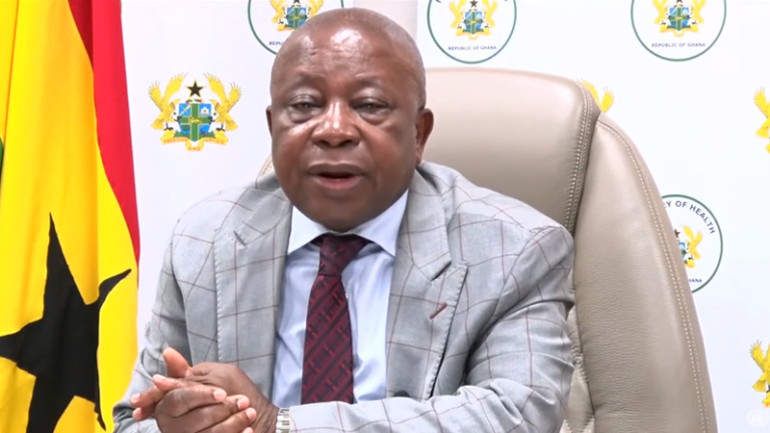High-Level Thematic Debate on “Galvanising Momentum for Universal Vaccination

- Posted by admin
- Posted in Statement & Remarks
Hon. Kwaku Agyeman Manu
Minister of Health of the Republic of Ghana
February 25, 2022,
New York City
High-Level Thematic Debate on “Galvanising Momentum for Universal Vaccination
Excellency Mr. Abdalla Shahid
Two years into the Covid-19 pandemic, one would have hoped that the virus now would be under control. Regrettably, this is far from the case.
Inequitable allocation of countermeasures, especially vaccines are prolonging the Covid-19 pandemic and causing avoidable harm to lives and livelihoods, particularly for people
in low income countries and marginalised groups in high income countries.
A BBC report on 31st December 2021, citing WHO sources, revealed that the African continent had vaccinated just 9% of its population by the end of December 2021, compared to more than
70% vaccine coverage in some of the richest regions. Many of these high-income countries are rolling out 3rd and 4th booster doses to their entire adult populations in disregard of the WHO’s recommendations to prioritize high risk groups in all countries. At this rate, the African continent is also likely to miss the other WHO target to vaccinate 70% of every country by the
middle of 2022.
Even though Ghana was fortunate to be the first country in Africa to receive COVID-19 vaccine doses through the COVAX facility in February 2021, we have managed to vaccinate just over
11% of our population at the end of December 2021 due to vaccine scarcity. According to the WHO, if vaccines had been distributed equitably, they would have been enough to cover all
health workers and older people globally. Ghana’s vaccination strategy outlines specific actions for reaching disadvantaged groups such as refugees, internally displaced people, asylum seekers and migrants, to ensure that none of these groups is left behind.
Ghana’s longstanding Primary Healthcare (PHC) approach, in both urban and rural areas, is at the heart of efforts to deliver COVID-19 vaccines to the population. Principles of equity are guiding the nation’s vaccination strategy, as additional resources are provided to finance vaccine deployment to the hardest to reach communities in line with the UHC goal to leave no one behind.
The main lesson from the global Covid-19 response therefore is the need to prioritise equity as a guiding principle and goal in decisions concerning the production and allocation of vaccines and other countermeasures both for the current and future health emergencies. To achieve this, we need to support global collaborative mechanisms such as the WHO-led Covid-19 Technology Access Pool (C-TAP), the African Vaccine Acquisition Trust (AVAT) and the new mRNA vaccine technology transfer hubs designed to promote the equitable sharing of knowledge, technology, and countermeasures.
While the Access to Covid-19 Tools Accelerator (ACT-A) and its COVAX vaccine pillar is to be lauded, their lack of equity and absence of meaningful participation of developing countries in their design and operations have been significant hindrance to their effectiveness. For COVAX to truly serve its aims of accelerating the development and manufacture of COVID-19 vaccines, and guarantee fair and equitable access for every country, a fundamental redesign of its operational model is crucial.
Finally, Covid-19 highlights the need for governments to increase funding for the health sector, including through investment both in the local health systems required for vaccine delivery and in community engagement to enhance acceptance and confidence.
Mr. President, if the Covid-19 pandemic has taught us anything, it is that diseases know no borders, and that no nation, however rich can survive a public health emergency of the scale
of Covid-19 alone.
I thank you for your kind attention.
